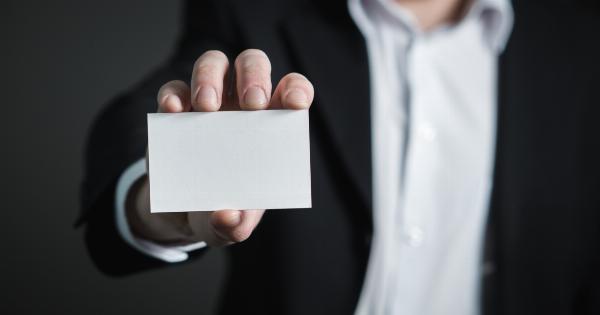When it comes to bodily functions, one of the most essential and inevitable processes that humans undergo is urination. Regardless of gender, every person experiences the need to urinate at various intervals throughout the day.
The need to urinate is triggered by several factors and is a vital process for maintaining bodily health and functionality. In this article, we will explore what triggers the need for men to urinate, delving into the physiological, environmental, and lifestyle factors that contribute to this natural bodily process.
Physiology of Urination
Before diving into the triggers, it is crucial to understand the physiology behind urination. The urinary system plays a vital role in filtering waste products and excess fluids from the blood and expelling them from the body.
The key organs involved in this process are the kidneys, ureters, bladder, and urethra.
1. Bladder Fullness
One of the main triggers for the need to urinate is the sensation of bladder fullness. As the bladder gradually fills up with urine, it stretches and expands, sending signals to the brain that it is time for elimination.
The brain then communicates with the urinary muscles, known as the detrusor muscles, to contract while simultaneously relaxing the urinary sphincter muscles that control the flow of urine.
2. Nerve Signaling
Nerves play a significant role in triggering the need to urinate. Sensory nerves in the bladder wall send signals to the brain, indicating the level of bladder fullness.
These nerves also detect pressure changes and discomfort that arise as the bladder fills, which ultimately leads to the urge to urinate. Coordination between the bladder and the brain ensures proper timing and control of the urination process.
3. Hormonal Influence
Hormones can also affect the need for men to urinate. The antidiuretic hormone (ADH), also known as vasopressin, regulates water balance in the body by reducing the production of urine.
If ADH levels are low or imbalanced, it can lead to increased urine production, triggering a more frequent urge to urinate.
4. Fluid Intake
The amount of fluid a person consumes directly affects the need for urination. When fluids are ingested, they are processed by the body and excess fluids are expelled as urine.
Larger fluid intake increases the rate at which the bladder fills, resulting in a heightened need to urinate. Additionally, certain beverages like coffee and alcohol act as diuretics, increasing urine production and intensifying the urge to urinate.
5. Medications and Diuretics
Certain medications and diuretics can trigger the need for men to urinate more frequently. Medications like diuretics, used to treat conditions such as high blood pressure, increase urine production by aiding the body in eliminating excess fluid.
This increased flow of urine can lead to a heightened need to urinate.
6. Prostate Issues
For men specifically, prostate issues can greatly influence the urge to urinate. The prostate is a small gland located underneath the bladder, and when it becomes enlarged or inflamed, it can obstruct the flow of urine from the bladder.
This restriction often results in a frequent urge to urinate, as well as difficulty initiating urination and weakened urine flow.
7. Urinary Tract Infections
Urinary tract infections (UTIs) can also trigger the need for men to urinate more frequently. UTIs occur when bacteria enter the urinary tract and multiply, leading to inflammation and irritation.
This irritation causes an increased urge to urinate and a sensation of urgency even when the bladder is not full. UTIs may also be accompanied by other symptoms such as pain or a burning sensation during urination.
8. Anxiety and Stress
Emotional factors, such as anxiety and stress, can impact the need to urinate. Psychological stress triggers the release of hormones like adrenaline, which can stimulate the bladder and lead to a more frequent urge to urinate.
Additionally, anxiety and stress can increase muscle tension, including the muscles that control bladder function, exacerbating the need to urinate.
9. Temperature and Environmental Factors
Temperature and environmental factors can also play a role in triggering the need for men to urinate.
Cold weather or exposure to cold temperatures can cause the body to shiver, which can put additional pressure on the bladder and lead to an increased urge to urinate. Additionally, certain sound or visual cues associated with urination, like running water or being near a bathroom, can trigger the need to urinate even if the bladder is not full.
10. Age and Muscle Weakness
As men age, the muscles involved in the urination process can weaken or deteriorate, leading to a stronger urge to urinate. This muscle weakness can contribute to bladder dysfunction, causing issues such as urinary incontinence or an overactive bladder.
These conditions can heighten the frequency and urgency of urination.
Conclusion
The need to urinate is a natural bodily function that ensures the removal of waste products and maintains the overall health of the urinary system.
Various triggers, such as bladder fullness, nerve signaling, hormonal influence, fluid intake, medications, prostate issues, urinary tract infections, anxiety and stress, temperature and environmental factors, and age-related muscle weakness, can all contribute to the need for men to urinate. Understanding these triggers can aid in recognizing and addressing any potential issues related to urination, ultimately promoting a healthier urinary system and overall well-being.































